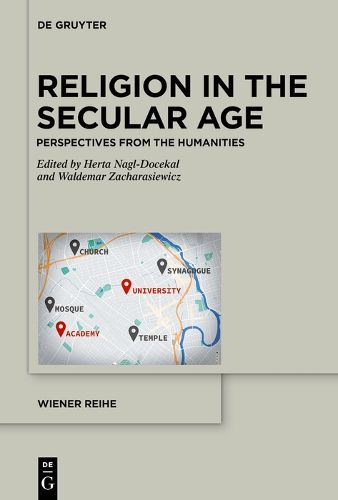Readings Newsletter
Become a Readings Member to make your shopping experience even easier.
Sign in or sign up for free!
You’re not far away from qualifying for FREE standard shipping within Australia
You’ve qualified for FREE standard shipping within Australia
The cart is loading…






This title is printed to order. This book may have been self-published. If so, we cannot guarantee the quality of the content. In the main most books will have gone through the editing process however some may not. We therefore suggest that you be aware of this before ordering this book. If in doubt check either the author or publisher’s details as we are unable to accept any returns unless they are faulty. Please contact us if you have any questions.
What does it mean to be religious believers for people whose living conditions are defined by an increasingly secularized environment? Is the common distinction between faith and knowledge valid? The 21 essays cover approaches from various fields of the humanities. Some explore post-Kantian thoughts, discussing, i.a., American Pragmatism, M. Buber, M. Horkheimer, H. Putnam, J. Habermas, Ch. Taylor and variants of deconstruction, while other essays focus on ways in which the conflict between agnostics and seekers is addressed in US literary works, as in Fl. O'Connor, W. Percy, N. Hawthorne, J. Updike and in novels dealing with pandemics, for instance by L. Wright, E. M. Wiseman and R. Cook. Historical studies examine the intermingling of the sacred and the secular in the American South and neo-scholastic objections to modernity. Theological issues are being re-framed in essays discussing the relevance of pluralism, the relation of religious conviction and public opinion, the situation of scientists who believe and the thoughts of N. Frye and M. McLuhan. Finally, essays pay attention to religious aspects in works of art, e.g. in Ukrainian poetry, G. Mahler's symphonies and in a TV show presenting new "American Gods" of globalization.
$9.00 standard shipping within Australia
FREE standard shipping within Australia for orders over $100.00
Express & International shipping calculated at checkout
This title is printed to order. This book may have been self-published. If so, we cannot guarantee the quality of the content. In the main most books will have gone through the editing process however some may not. We therefore suggest that you be aware of this before ordering this book. If in doubt check either the author or publisher’s details as we are unable to accept any returns unless they are faulty. Please contact us if you have any questions.
What does it mean to be religious believers for people whose living conditions are defined by an increasingly secularized environment? Is the common distinction between faith and knowledge valid? The 21 essays cover approaches from various fields of the humanities. Some explore post-Kantian thoughts, discussing, i.a., American Pragmatism, M. Buber, M. Horkheimer, H. Putnam, J. Habermas, Ch. Taylor and variants of deconstruction, while other essays focus on ways in which the conflict between agnostics and seekers is addressed in US literary works, as in Fl. O'Connor, W. Percy, N. Hawthorne, J. Updike and in novels dealing with pandemics, for instance by L. Wright, E. M. Wiseman and R. Cook. Historical studies examine the intermingling of the sacred and the secular in the American South and neo-scholastic objections to modernity. Theological issues are being re-framed in essays discussing the relevance of pluralism, the relation of religious conviction and public opinion, the situation of scientists who believe and the thoughts of N. Frye and M. McLuhan. Finally, essays pay attention to religious aspects in works of art, e.g. in Ukrainian poetry, G. Mahler's symphonies and in a TV show presenting new "American Gods" of globalization.